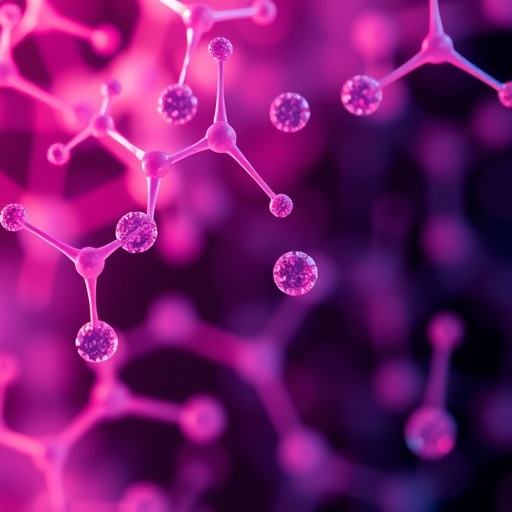In an effort to enhance treatment strategies for breast cancer, particularly in the context of metastatic hormone-positive, HER2-negative subsets, researchers have turned their focus to cyclin-dependent kinase 4/6 (CDK4/6) inhibitors. These agents have emerged as pivotal components in the therapeutic landscape over recent years, offering the promise of better outcomes. However, a significant hurdle lies in the hepatotoxicity associated with these inhibitors, causing researchers to explore not only management strategies but also potential rechallenge approaches for patients who experience this adverse effect.
Hepatotoxicity, characterized by liver injury from various causes, poses a unique challenge in cancer therapy. The liver plays a crucial role in drug metabolism, and its impairment can lead to serious consequences for drug efficacy and patient health. The emergence of hepatotoxicity in patients treated with CDK4/6 inhibitors can necessitate treatment modification, often leaving oncologists uncertain about the best course of action. Understanding the mechanisms and incidences of this toxicity becomes paramount in order to maintain treatment efficacy while safeguarding patient well-being.
One of the critical aspects of hepatotoxicity linked to CDK4/6 inhibitors is the variability in individual patient responses. Genomic and metabolic factors can influence the extent of liver damage. Such variability complicates the treatment landscape, requiring clinicians to tailor their approaches based on patient-specific factors. For instance, pre-existing liver conditions, medication interactions, and genetic predispositions can all impact how a patient metabolizes these drugs and their associated risk of hepatotoxicity.
Recent studies have illuminated the underlying mechanisms driving liver injury associated with CDK4/6 inhibitors such as palbociclib, ribociclib, and abemaciclib. Initial research indicates that these agents can induce liver enzyme elevations, prompting hepatic inflammation and in some cases leading to severe liver dysfunction. These findings underline a clear need for proactive monitoring of liver function during treatment, as early detection of hepatotoxicity may allow for timely intervention and management.
The discussion surrounding the management of hepatotoxicity in cancer therapy has brought forth a range of strategies aimed at mitigating risk and enhancing patient outcomes. Clinicians are encouraged to adopt a vigilant approach, utilizing regular liver function tests to monitor for signs of toxicity as patients undergo treatment with CDK4/6 inhibitors. When elevations in liver enzymes are detected, an important consideration is whether to temporarily discontinue the drug or adjust the dosing regimen. Such modifications must be carefully weighed against the potential impact on patient’s overall cancer treatment plan.
An intriguing area of research has emerged around the concept of rechallenge strategies for patients who previously experienced hepatotoxicity. The goal is to determine whether patients can safely re-initiate therapy after a period of discontinuation. Preliminary data suggests that some patients may tolerate the therapy upon rechallenge, especially with appropriate monitoring and dose modifications. This represents a significant opportunity to improve outcomes for those patients whose treatment path may have been derailed by adverse effects.
In exploring these rechallenge methodologies, researchers are beginning to establish guidelines that could help clinicians navigate resumption of therapy. By identifying risk factors, such as the degree of prior liver injury and overall patient health, oncologists can tailor rechallenge protocols that maximize benefits while minimizing risks. This potential for resuming treatment could play a crucial role in managing the balance between effective cancer control and side-effect mitigation.
Furthermore, the integration of personalized medicine into the management of hepatotoxicity represents an exciting frontier. Pharmacogenomics, which examines how genes affect a person’s response to drugs, could help predict which patients are most likely to experience liver-related adverse effects. Armed with this information, oncologists can prudently select candidates for CDK4/6 inhibitor therapies, thereby reducing the incidence of hepatotoxicity across the patient population.
In addition to optimizing therapeutic regimens, attention must also be given to patient education and awareness. By informing patients about the signs and symptoms of hepatotoxicity, they can be engaged participants in their treatment journey. Proactive patient management—coupled with responsive clinician practices—can significantly improve outcomes by facilitating early detection and intervention practices.
The collaboration between researchers and clinicians will be crucial in advancing hepatotoxicity management. Collaborative efforts are essential to conducting comprehensive studies that assess long-term safety and efficacy of rechallenge strategies, ensuring that knowledge gained translates into practical applications for treating cancer. As the landscape of oncology continues to evolve, such partnerships will be instrumental in navigating the complexities introduced by drug-related toxicities.
In conclusion, while the advent of CDK4/6 inhibitors has undeniably transformed prostate cancer therapy, the concurrent challenge of hepatotoxicity must be met with due diligence. Ongoing research and clinical vigilance, along with personalized treatment approaches and patient education, form the bedrock of effective strategies aimed at minimizing the risks of liver injury while maximizing the potential benefits of these innovative agents. As understanding in this field deepens, we can expect a future where patients receive optimal care that not only targets the disease but also prioritizes their overall health and well-being.
As we move forward, the integration of findings from ongoing research will be critical in shaping best practices for hepatotoxicity management in the context of CDK4/6 inhibitor use. A united approach among researchers, healthcare providers, and patients will be vital in pushing the boundaries of effective cancer treatment, ensuring that adverse effects do not hinder progress against one of the most challenging health concerns of our time.
Subject of Research: hepatotoxicity associated with CDK4/6 inhibitors
Article Title: Management of hepatotoxicity associated with CDK4/6 inhibitors and rechallenge strategies in metastatic hormone-positive, HER2-negative breast cancer
Article References:
İlhan, N., Baş, S., Alkan, O. et al. Management of hepatotoxicity associated with CDK4/6 inhibitors and rechallenge strategies in metastatic hormone-positive, HER2-negative breast cancer.
J Cancer Res Clin Oncol 151, 270 (2025). https://doi.org/10.1007/s00432-025-06336-1
Image Credits: AI Generated
DOI: 10.1007/s00432-025-06336-1
Keywords: CDK4/6 inhibitors, hepatotoxicity, breast cancer, rechallenge strategies, cancer therapy.




